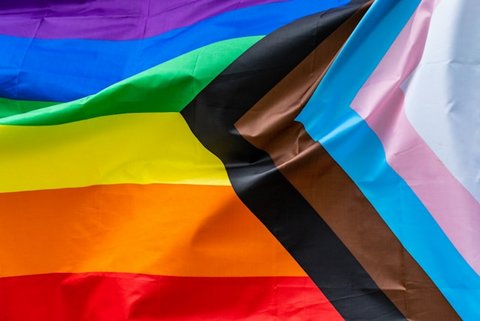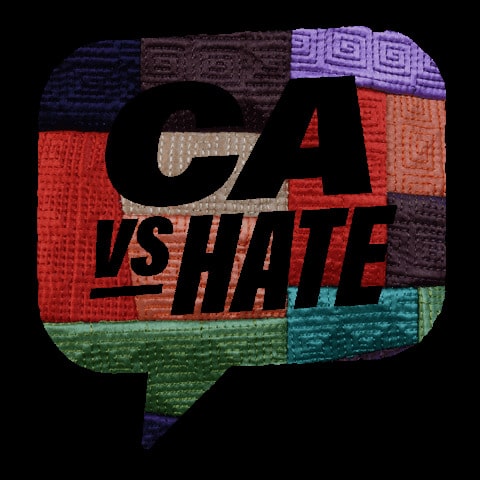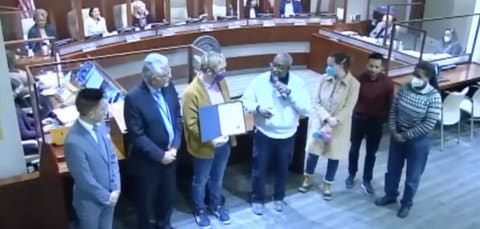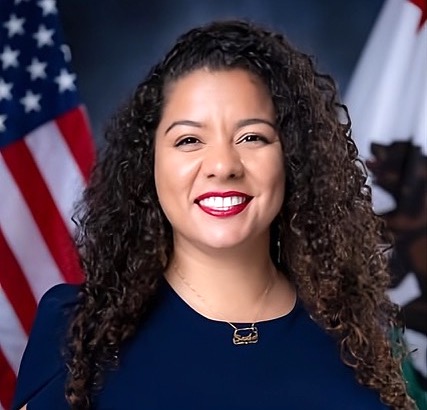
26 Jul With LGBTQ+ Hate Crimes Rising, How is California Responding?

(Photo by Chris Robert on Unsplash)
By Selen Ozturk, Ethnic Media Services
The number of anti-LGBTQ+ hate crimes in California nearly doubled last year despite an overall decrease in hate crimes statewide, leaving many feeling unsafe in their communities.
Black transgender women continue to be among those most targeted. In response, community-based organizations throughout California are partnering with the state’s first-ever, multilingual hate crime reporting hotline, CA vs Hate.
At a Thursday, July 18 Ethnic Media Services briefing, representatives from the California Civil Rights Department and community-based organizations statewide discussed the rise in anti-LGBTQ+ hate, the CA vs Hate initiative and on-the-ground stories of LGBTQ+ peoples’ experiencing and fighting hate.
California against LGBTQ+ hate
Of the 2,303 hate crimes reported to the California Attorney General between 2022 and 2023, those motivated by sexual orientation and gender together comprised 24.2%.
Compared to an 8.9% fall in hate crimes overall, those motivated by sexual orientation bias rose 4.1% in 2023, and those motivated by anti-transgender or anti-gender-nonconforming bias rose 7.04% in 2023.
Anti-LGBTQ+ bias events overall increased by 86.4% in 2023 from 2022.
Becky Monroe, deputy director of Strategic Initiatives and External Affairs, the Civil Rights Department, explains how reporting hate crimes can prevent future violence and improves support services for victims.
“This data is underreported,” said Becky Monroe, deputy director of strategic initiatives and external affairs at the California Civil Rights Department. “We hear directly from these communities that many don’t feel safe to report or that it’s not being shared accurately.”
In response, the CA vs Hate hotline was launched in March 2023 to support Californians in reporting and overcoming hate by connecting them to state agencies as well as hundreds of community-based organizations providing resources including legal aid, counseling, mental health care, social services, and advocacy.
The hotline provides services statewide in over 200 languages, with downloadable resources online in over 24 languages
Reporting can be done at CAvsHate.org or by phone at 1-833-8NO-HATE Monday through Friday, 9 a.m. through 6 p.m. PST, with an option to leave a voicemail and get a return call outside those times.
Even beyond crimes, “we respond to all forms of hate,” said Monroe. “I recently heard from a young African American woman in San Francisco who said every time she went into a store, she and her family were followed. She said ‘It may not be a crime, but it’s causing me harm’ … and we connected her with organizations led by people who had shared experiences of discrimination. If you report, you will get support.”
Transgender women of color
“Among LGBTQ deaths, “over 40%, on average per year, are trans women of color,” said Toni Newman, director of The Coalition for Justice and Equality Across Movements at the National Minority AIDS Council; chair of the board Of directors of TransCanWork; and faculty member of the Transgender Strategy Center.
Toni Newman, Black Leadership Council, director of The Coalition for Justice and Equality Across Movements and director of The Center to End the Epidemic, shares statistics on anti-trans violence and discusses the higher rates of harm Black trans women face.
In 2023, 84% of 32 transgender fatal violence victims in the U.S. documented by the Human Rights Campaign were people of color; 50% were Black transgender women.
“I have 30 years of lived experience as a trans woman of color. I had graduated from Wake Forest and found myself homeless, without family and friends. I have lived through what it is to have no home, and what hate looks like, up close and personal,” said Newman.
Some 36% of trans victims with a known killer in 2023 were killed by a partner, friend or family member; 78% were killed with a gun.
“Many of these women are below the poverty level and facing job and financial insecurity, putting them at a higher risk of violence, often coming internally,” she continued. “To address the violence, we also have to address unfair treatment, unequal opportunities, living wages and health care … We are Americans. We are not asking for special treatment, just fair treatment.”
Community stories against LGBTQ+ hate
“I found in my work that the highest populations being targeted were LGBTQ+ and undocumented people,” said Andy Ruiz, the first staff attorney hired at St. John’s Community Health clinic, a CA vs Hate partner in Los Angeles. “I’ve found it very helpful paralleling this work with my immigration work, when it comes to victims’ reluctance to report hate crimes to law enforcement.”
Andy Ruiz, legal support staff and grant administrator at St. Johns Community Health Legal Services Department, discusses the need for greater accountability when it comes to police response to the LGBTIQ+ community.
“Many times, individuals do try to report hate incidents, but they’re shooed away, and then are reluctant to call law enforcement when the incidents escalate and they’re being physically attacked,” Ruiz explained.
One individual came to St. John’s seeking assistance, having been tricked into a relationship with a person in a gang, through a gay dating app during the pandemic.
“This individual became very well acquainted with the other person, who came to his house with a knife and fellow gang members, who completely robbed his house,” Ruiz said. “The individual called law enforcement, blamed him and said he shouldn’t be meeting strangers.”
“This individual was already represented by another attorney, who dropped the case because they didn’t want issues with law enforcement,” Ruiz continued. “My job is not to maintain friendships with external agencies. It’s to help you. We got this individual’s police report amended to show the bias, and helped him submit a U Visa application as the victim of a qualified crime.”
“As a trans person myself … it taught me that sometimes the system will work against you, but you have to continue working with it,” Ruiz added.
Aries Yumul, Coordinator LGBTQ+ District Resource and Support with the Santa Clara County Office of Education, shares why he became a teacher and the student suffering that moved him to advocate for LGBTQ+ youth in schools.
“I was a high school teacher for many years, and I wanted to make my classroom a safe space. However, that wasn’t enough. During those years I lost five students to suicide, and these will stay with me for the rest of my life,” said Aries Rivers Yumul, who now coordinates districtwide and statewide LGBTQ+ support for the Santa Clara County Office of Education.
“It’s no wonder that LGBTQ+ students are overrepresented in absenteeism, lower academic performance and the foster youth and juvenile justice systems,” he continued. “When I would talk to LGBTQ+ students who had been in these systems multiple times, they’d tell me they felt safer there than they did outside.”
Yumul is also part of a statewide collaborative of educators which has helped draft California legislation like SB 760, which guarantees all-gender restroom access for K-12 students; AB 5, which requires the state to develop online LGBTQ+ cultural competency training for teachers of grades seven through 12; and AB 1078, banning book bans and textbook censorship in the state’s over 10,000 schools.
“Schools are one of the last bastions of public service out there,” Yumul added. “As educators, we’re on the front lines of making sure students are safe … LGBTQ+ youth are among the most vulnerable, and we’re trying to make sure they’re cared for just as much as everyone else.”






No Comments